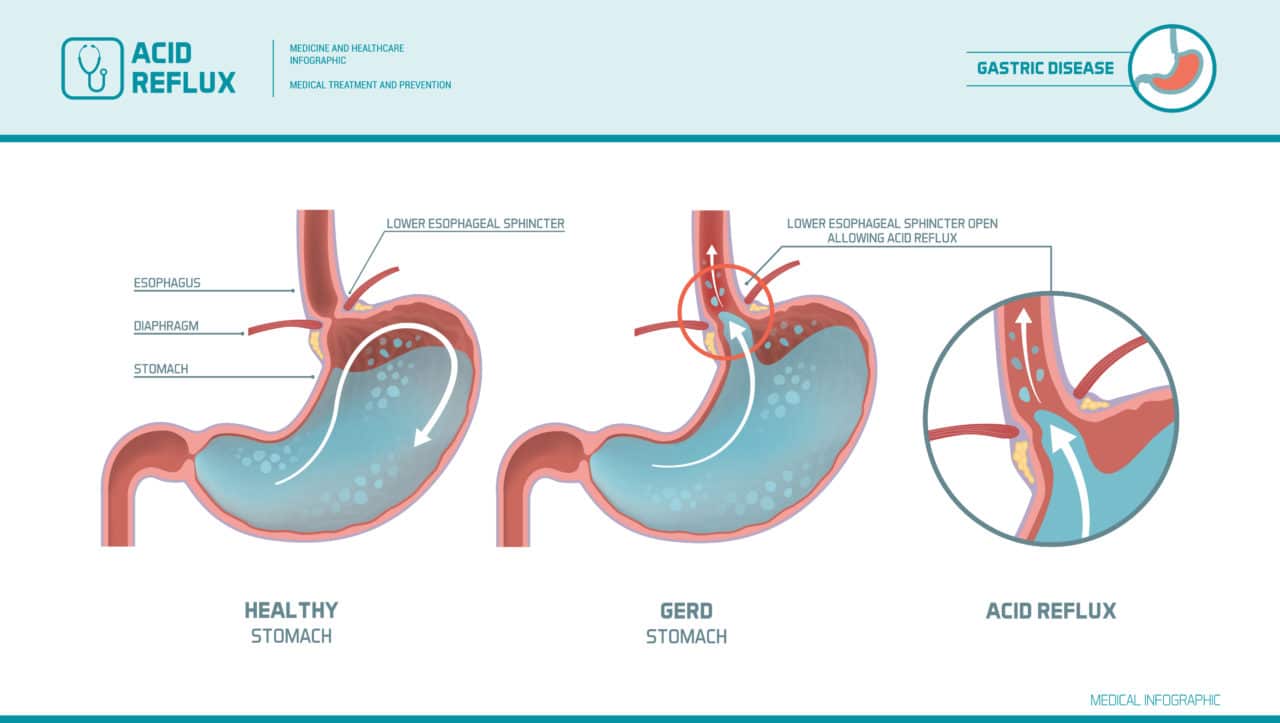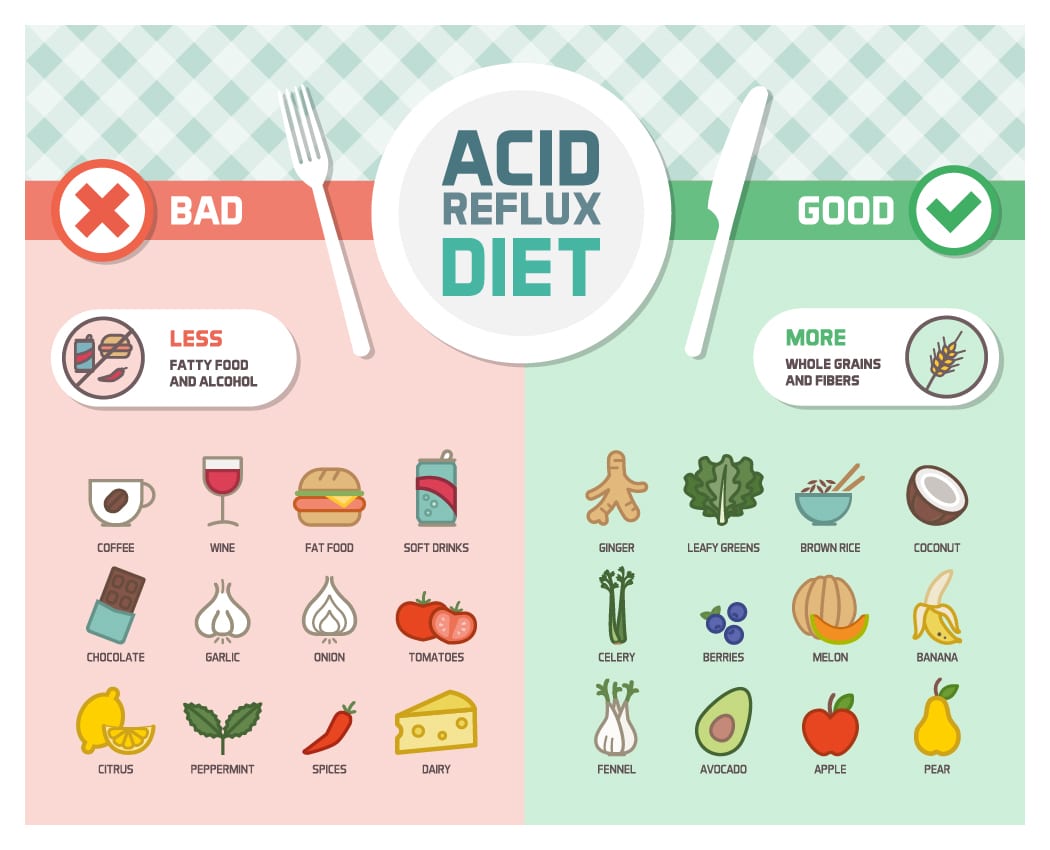What is GERD?
Gastroesophageal reflux is a chronic disease that occurs when stomach contents flow back (reflux) into the food pipe (esophagus). It is a very common problem. It is usually caused by failure of the muscle valve (called the lower esophageal sphincter) between the stomach and the esophagus to close properly. The backwash of stomach acid irritates the lining of the lower esophagus and causes the symptom of heartburn.

Heartburn, which is the most common symptom of GERD, usually feels like a burning sensation behind the breastbone, moving up to the neck and throat.
What Are the Risk Factors for GERD?
- Pregnancy
- Smoking
- Drinking alcohol
- Being overweight
- Eating certain foods (fatty/fried food, chocolate, mint, garlic, onions, tomato sauce, citrus)
- Drinking certain drinks (juices, carbonated drinks)
- Lying down after a meal
What Are the Warning Signs of GERD?
The most common symptoms of GERD are heartburn or regurgitation. Regurgitation is when liquid or food from the stomach moves from the esophagus into the mouth.
Other Symptoms May Include:
- Chest pain
- Hoarseness
- Wheezing
- Trouble breathing
- Chronic cough
- Difficulty swallowing
- Excess throat mucus and throat clearing
- Postnasal drip
How Is GERD Diagnosed?
Your doctor will ask questions about your medical history and symptoms. You may be diagnosed with GERD based on your symptoms or by taking medicine to see if your symptoms improve. Your doctor may need to look inside of your esophagus. This is done by passing a long, thin tube called an endoscope through your mouth and stomach to learn more about your symptoms.
How Is GERD Treated?
For many patients, lifestyle changes can help improve symptoms. These changes include:
- Avoiding foods or drinks that may cause GERD symptoms
- Not lying down for 3 hours after meals and raising your head during sleep
- Quitting smoking and avoiding alcohol
Other treatments for GERD include:
- Over-the-counter antacids
- Prescription medicines to lower stomach acid
- Surgery, which may be needed by some people when other treatments do not help
What Are the Trigger Foods that Should Be Avoided?
- Coffee (with or without caffeine) and caffeinated beverages relax the lower esophageal sphincter.
- Citrus fruits and juices such as orange, grapefruit and pineapple have high acid content.
- Tomatoes and processed tomato-based products such as tomato juice, and pasta and pizza sauces are highly acidic.
- Carbonated beverages (fizzy drinks) cause gaseous distension of the stomach (bloating), which increases pressure on the lower esophageal sphincter causing acid reflux.
- Chocolate contains a chemical called methylxanthine from the cocoa tree, which is similar to caffeine. It relaxes the lower esophageal sphincter, which causes acid reflux.
- Peppermint, garlic and onions relax the lower esophageal sphincter causing acid reflux.
- Fatty, spicy or fried foods relax the lower esophageal sphincter as well as delay stomach emptying and therefore cause acid reflux

Call San Diego ENT at (858) 926-7010 for more information or to schedule an appointment.